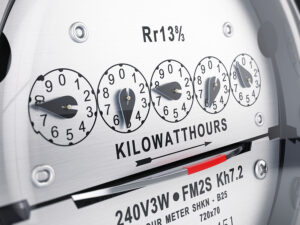 Your electricity meter plays a significant role in determining the amount you pay for electricity each month. If it’s measuring your electricity usage accurately, you know that your utility bill is likely correct. But how do you know if your meter is calibrated correctly? If it’s not, you could be spending much more on your electrical bills than you should be.
Your electricity meter plays a significant role in determining the amount you pay for electricity each month. If it’s measuring your electricity usage accurately, you know that your utility bill is likely correct. But how do you know if your meter is calibrated correctly? If it’s not, you could be spending much more on your electrical bills than you should be.
Why should I care if my electricity meter is calibrated correctly?
Quite simply—your electricity meter affects your bottom line. An inaccurate meter can cost your company thousands of dollars a year paying for electricity you never actually use. But it has a wider effect than just your utility bill. If you’re using your meter’s readings to plan for future facility improvements and predict future energy costs, an inaccurate meter throws off those estimates, too.
Know the last time your electricity meter was tested.
The first step in knowing whether or not your meter is calibrated correctly is to look through your service records. When was the last time you had your meter tested for accuracy? Generally, meters should be tested in the following circumstances:
- when they’re first installed
- when they’re removed from service
- around their fifth year of service
- periodically after their fifth year of service, depending on the type of meter
- when you suspect the meter is inaccurate
- when your meter’s been damaged
Understand what is appropriate and expected for your type of meter.
Different types of meters have different requirements for testing and accuracy. A self-contained, single-phase meter that is non-magnetic-bearing requires testing every five years, while a magnetic-bearing, surge-proof meter requires testing every 20 years. A self-contained polyphase meter that isn’t surge-proof requires testing around eight years of service, while a surge-proof one requires testing around 12 years.
With so many different types of meters with a wide range of testing requirements, you need to know what is expected and appropriate for your particular meter. Your utility company can help you determine what type of electricity meter you have and set up a regular maintenance and testing schedule to ensure its accuracy.
Who can test and calibrate my electricity meter?
If you’d like to have your electricity meter tested, contact your utility company. You’ll need to pay a fee for the test. If the meter is calibrated correctly, then you’re only out the testing fee. But most utility companies will reimburse the testing fee if they find your meter is inaccurate and costing you more than it should.
If you’ve had your meter tested for accuracy and recalibrated but you still feel you’re paying more than you should for electricity, it’s time to have your utility bill audited for errors. Contact the SM Engineering team to get the no-obligation process started.


